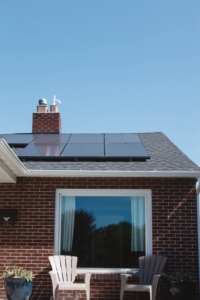
Dear Claire: How Do I Invest in an Investment Property?
Unlocking the Potential of Investment Properties: Tips and Insights
Today on Dear Claire, we talk about investment property.
A lot of people use real estate as your retirement and as anther source of income generation. So what does that mean? It means, say, I buy my first house. It’s a modest house and eventually I want to move out because maybe I found a partner or I had some kids or my mom’s got to come stay with me. Any of those reasons, or any myriad of other possibilities you might think of. So I purchase move into my second house. I actually can keep my first house and rent it out, even though I got it on the loan for my principal residence. The reason why this is a big deal and super effective is because you put way less money down. Typically, if I go out today and want to buy an investment property, and this is only for investment, it would require a 25% down payment. In addition your credit score has to be high, and you must have a lot of reserve funds in the bank to pay for that mortgage when it comes due. Most people don’t have 25% on a home in a market average sale price of $400,000. Usually the easiest way for most people to get into rental property is to purchase a new property, keep the original house, and the original house becomes a rental. You are allowed to do this as long as when you bought your first house you intended to live there, and you lived there for at least a year.
If you are going to buy a property purely for it to be an investment, and it will not be a property that will be your principal residence, then you’ll need pay 25% down and they’re going to consider the rent that you’ll collect as part of your income, which is a nice bonus. To give an example, a W2 employee making a regular salary, it can be difficult to be able to afford to get double mortgages, right? So a house payment where a house payment is $2,000 a month, and the property can rent for $2200 a month that will typically count towards your overall income. Meaning one can qualify for more purchasing power. Magical!
For investment properties, be sure to explore insurance policies that higher liability coverage in case an injury happens to the renters, like someone trips and falls and they have medical bills and/or file a lawsuit. I also recommend earthquake insurance, especially on investment properties. People assume that the federal government is going to help out people with all damaged property should a major earthquake hit. They are probably going to help people in their principal residences first, and you probably should not count on any assistance with investment properties. You want also to screen tenants well – that’s a really important one. City of Portland has this awesome resource. It’s actually called the Landlord Training Program. See that attached link and it’s free. The City has other information online that you can access as well. There are usually two training, one in spring, and one in the fall. When screening tenants there are questions you can and cannot ask. This class will cover those as well.
Give me a call at 503-998-4878 or shoot me an email, [email protected], with any questions. Have a great week. I’ll see you next week.
Have more questions or want professional advice on buying or selling a home?
Contact us at [email protected] or (503) 926-5213. We’re here to address all your real estate needs!




